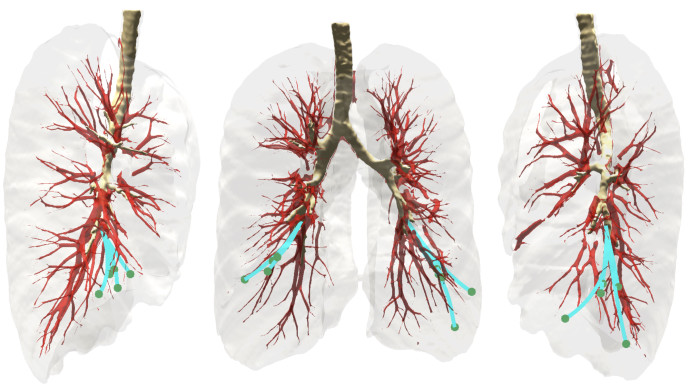Insufficient or interrupted sleep may have more of an impact than smoking history in patients with a progressive lung disease, according to a study led by UC San Francisco researchers.
The researchers found that for patients with COPD (chronic obstructive pulmonary disease), inadequate sleep may increase their risk of a flare-up by up to 95% compared to those with good sleep.
During a three-year period, researchers recorded "flare-ups," defined as short-term worsening of symptoms requiring treatment, and compared their incidence with self-reported data on sleep quality.
Over time these flare-ups, which manifest in worsening shortness of breath and cough, may cause irreversible lung damage, and accelerate disease progression and mortality.
How was the study conducted?
The researchers tracked 1,647 patients who were enrolled in the national, multi-center SPIROMICS study, all of which had confirmed COPD. The study monitored the progression of the disease and evaluated the effectiveness of treatments.

The findings appear online in the peer-reviewed journal SLEEP on June 6, 2022.
The findings may partially explain why African American patients with COPD tend to fare worse than white patients, explained Aaron Baugh, MD, a clinical fellow at the UCSF Division of Pulmonary, Critical Care, Allergy and Sleep Medicine, and the Cardiovascular Research Institute.
“African Americans are over-represented in low-income neighborhoods, where people are less likely to have good quality sleep. They may live in crowded spaces with multiple roommates, and have less comfortable sleeping conditions, such as a couch, and they may work in a job with a varying schedule that lends itself to sleep disruption,” said Baugh.
"Research shows sleep deprivation is associated with a drop in infection-fighting antibodies and protective cytokines," he added.
"Research shows sleep deprivation is associated with a drop in infection-fighting antibodies and protective cytokines."
Dr. Aaron Baugh
In the beginning of the study, the average age of the participants was 65 and the average stage of the disease was moderate. Over half of the participants (57%) were male; 80% were white and 14% were African American.
The participants were all current or former smokers who underwent at least one sleep evaluation when the study began. Researchers found that compared to participants with good sleep, those at the base level of poor sleep had a 25% increased chance of a flare-up within the next year, rising to almost 95% within the next year for those with the worst sleep.
“While factors like health insurance coverage or respiratory hazards may play important roles in severity of the disease, poor sleep may gain even more significance when African Americans’ social status improves,” said Baugh. “This can lead to a kind of paradox; in reducing one risk factor, a new risk factor – poor sleep – may take its place.”